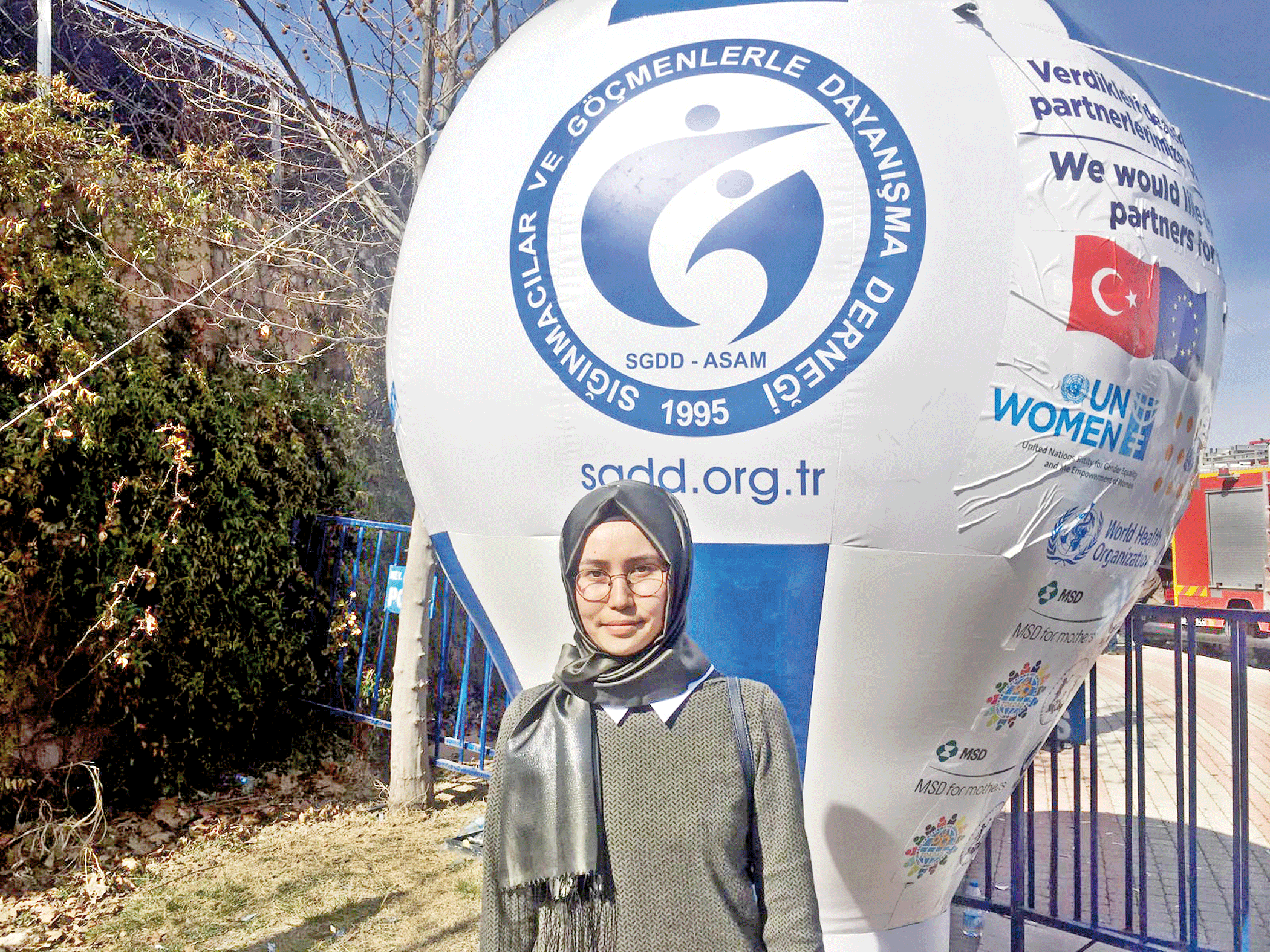
Refugee women from various backgrounds, who came to Turkey after running away from many heartbreaking incidents, say they found peace in Turkey thanks to the strong amities they have established with local women.
An event held by the Association for Solidarity with Asylum Seekers and Migrants (SGDD) in the Central Anatolian province of Nevşehir to mark March 8 Women’s International Day has brought together about 2,000 refugee women living in Turkey.
“I came to Turkey about six years ago and have been living in the same house ever since. But my house is in quite a bad condition, it’s nearly impossible to live in it. Yet I never even thought of finding a new house because I do not want to lose contact with my neighbors. We are very close,” Huda Abdullah, a 52-year-old Syrian, told Hürriyet Daily News on March 9 during the event.
Abdullah, residing in Turkey’s southeastern province of Gaziantep but came only for one day to attend the event, said she has been using cooking as a method to help others out and an excuse to get together with women to talk about much more important issues.
“We gather with local women every Friday to discuss many issues regarding women. I cook them traditional Syrian food. We value women’s empowerment the most and pay visits to many households to raise awareness,” she added, underlining that refugee women, along with Turks, have been in great contact to support feminism.
“I love living in Turkey, I feel much safer here. I do not want to return to Afghanistan, I want to continue residing in Turkey, I want to study nursing here,” said Mina Barhaq, a 24-year-old young Afghan woman who has taken refuge in Nevşehir about three years ago with her mother and 10 siblings.
Barhaq also said that her biggest dream is to establish a foundation that will receive orphans with open arms. Regarding her relationship with Turks, the young woman stressed that her relationship with the local women is quite spirited.
“I have many friends and neighbors. We get along really well and neither of us gets disturbed by one another. We talk about our problems and try to solve them all together,” she said, emphasizing on the unbiased nature of their relationship.
“In Turkey, women are valued very much. I wish dearly for Afghanistan to value women as much,” she added.
‘We are here, we are strong!’
As the cultural affinity between Turkey and the regional countries become more evident, in a bid to ease their path leading to social integration, refugee women also participate in conventional meetings Turkish women are much familiar to.
“I have Turkish neighbors and we get together every week to cook and eat food together. They come to my house and cook Turkish food, I go to their homes and cook traditional Syrian food for them,” said Safiye Hasan, a Turkmen from Syria’s Aleppo who settled in Gaziantep two-and-a-half years ago.
Hasan has four children, including a 10-year-old who has recently overcome cancer but lost an eye during the treatment process.
“We have financial and health problems, but other than that our lives are well-tended. Yet we are here, we are strong and we will continue to fight,” she said.
When asked what about her views on Turkish people, Hasan stressed that they “have a really high energy,” and that this motivates herself.
“If the war ends, I would like to return to my country. But I think Turkey is the best country in the whole world. Here, they treat refugees really nice,” said Sara Abdullah, a Syrian widow who came to Gaziantep with her eight children and who holds on to her life with the good relations she has established with Turkish nationals.
“I have Turkish friends from the cooking course. We have a group on [messaging platform] WhatsApp where we talk. We have become sisters with the Turkish women,” she added.
Turkey is the top third country in the world to receive international protection applications from nearby countries such as Iraq, Afghanistan, Iran and mostly Syria.